Student Loan Bankruptcy
Home » Practice Areas » Orange County Bankruptcy » Student Loans
Practice Areas
Student Loan Bankruptcy Lawyer in Orange County
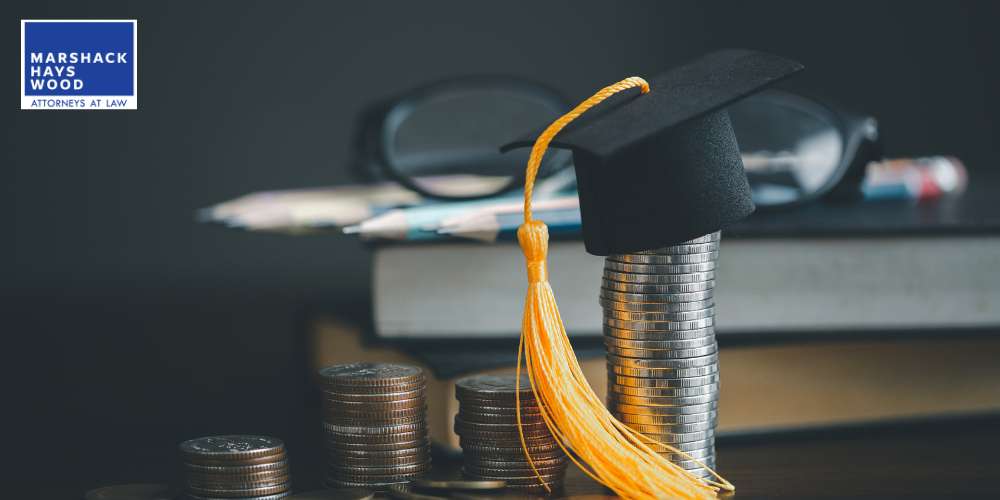
Many adults in America suffer from student debt problems, but for some, their loans are preventing them from paying their bills and providing for their families. That’s why many people with significant student loan debt turn to bankruptcy in order to relieve themselves of this massive financial burden.
While most debts can be erased in the bankruptcy process, student loans are much harder to discharge. Luckily, the Orange County bankruptcy attorneys at Marshack Hays Wood are prepared to help you file for bankruptcy and be rid of your student loan debt for good.
Our skilled attorneys will walk you through every step of the process and can advocate for you in bankruptcy court, ensuring you have the best chance at erasing your student loans. Call us at (949) 333-7777 to schedule a free initial consultation with a student loan attorney on our team.
What is a Student Loan Bankruptcy?
Student loan bankruptcy is what many people refer to when someone files for bankruptcy, and their primary reason for filing bankruptcy is their student loans. Bankruptcy isn’t a process where individuals can single out certain debts; it’s a process in which all of a person’s debts are addressed.
Because of this, a “student loan bankruptcy” doesn’t actually exist. It’s just a term used to describe the process of filing for bankruptcy due to student loans. A student loan bankruptcy will still address any other debts the person has.
What is a Student Loan Bankruptcy Attorney?
A student loan bankruptcy lawyer is a legal professional who specializes in the intersection of bankruptcy law and student loan debt. These attorneys possess a deep understanding of both federal and state bankruptcy laws, and how they pertain to the unique challenges presented by student loan debt.
They can provide borrowers with expert guidance on whether bankruptcy is a viable solution for managing or discharging student loan debts. A student loan attorney can also assist in preparing and presenting the ‘undue hardship’ case, which is often necessary to include in student loan bankruptcy proceedings.
Can I Discharge Student Loans in Bankruptcy?
Yes, a person can have their student loans discharged in bankruptcy, but it can be challenging and is subject to specific criteria and conditions. Student loans are generally considered non-dischargeable debts, meaning they cannot be eliminated through bankruptcy like other types of debt (such as credit card debt or medical bills).
However, under certain circumstances, a person can have their student loans discharged through bankruptcy.
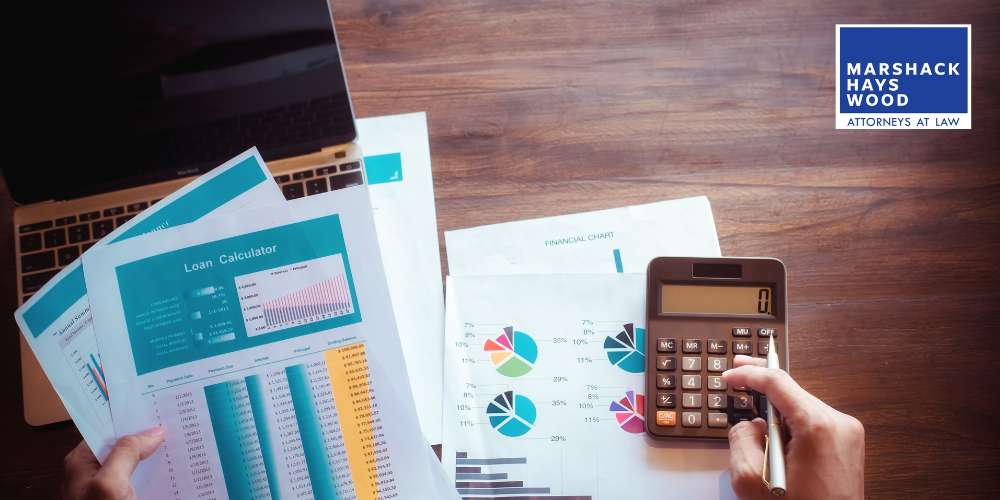
How Do Student Loan Bankruptcies Work?
Student loan bankruptcies work by relieving the debtor of their financial burdens and obligations, including, but not limited to, their student debt. To have their student loan debt discharged, however, they must prove that their student debt is causing them undue financial hardship.
Proving Undue Hardship for Student Loan Payments
“Undue hardship” is a legal standard that requires a debtor to prove that repaying their debts would impose a severe and enduring financial burden on them. In order to meet the undue hardship standard, debtors must prove that repaying their debts would prevent them from maintaining a minimal standard of living.
If the borrower can prove to the court that they have suffered from and would likely continue to suffer from financial hardship as a result of their debts, they may be able to have their student loan debts discharged. In most student debt cases, the court usually uses either the totality of circumstances test or the Brunner test to evaluate their eligibility for discharge.
Totality of Circumstances Test
The totality of circumstances test is a method of analyzing all of the extenuating circumstances surrounding a person’s financial situation. To determine whether or not their student loans would cause them undue hardship, the test looks at:
- The debtor’s past, present, and future financial resources;
- A calculation of their and their dependants’ living expenses; and
- Any other additional circumstances surrounding their bankruptcy case.
Brunner Test
The Brunner test, which is very similar to the totality of circumstances test, is also used to determine undue hardship. To pass the Brunner test, the court must establish that:
- The debtor cannot maintain a minimal standard of living if they continue to pay off their student loans
- Their financial situation is not likely to change; and
- The debtor has made good faith efforts to pay off their student loan debt in the past.
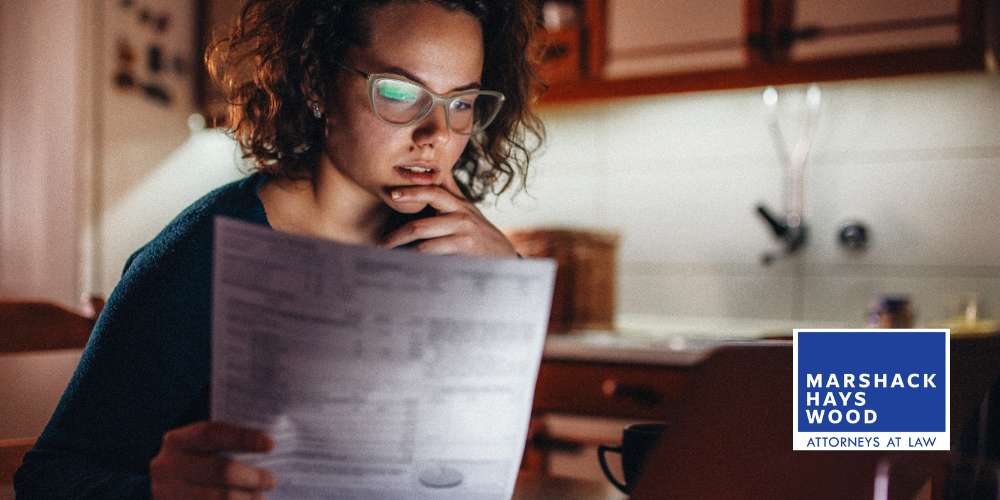
What Can I Do About My Private Student Loan Debt?
When it comes to addressing private student loan debt, borrowers have several options to explore. Unlike federal student loans, which offer various repayment plans and forgiveness programs, private student loans are typically less flexible.
However, there are steps you can take to manage this type of debt. These may include negotiating with private lenders for more favorable terms, refinancing to secure a lower interest rate, or seeking legal advice from a bankruptcy attorney.
What Can I Do About My Federal Student Loans?
When facing federal student loan debt, borrowers have various options to address their financial obligations. The federal government offers various repayment plans, including income-driven repayment options, which allow borrowers to make more manageable monthly payments, based on their income and family size.
Additionally, borrowers may qualify for loan forgiveness programs, such as Public Service Loan Forgiveness (PSLF) or Teacher Loan Forgiveness, if they work in eligible professions or for qualifying employers. Loan consolidation can also simplify payments by combining multiple federal loans into one.
Lastly, bankruptcy can work as a form of student debt relief, especially in situations where a borrower does not qualify for any student loan forgiveness programs.
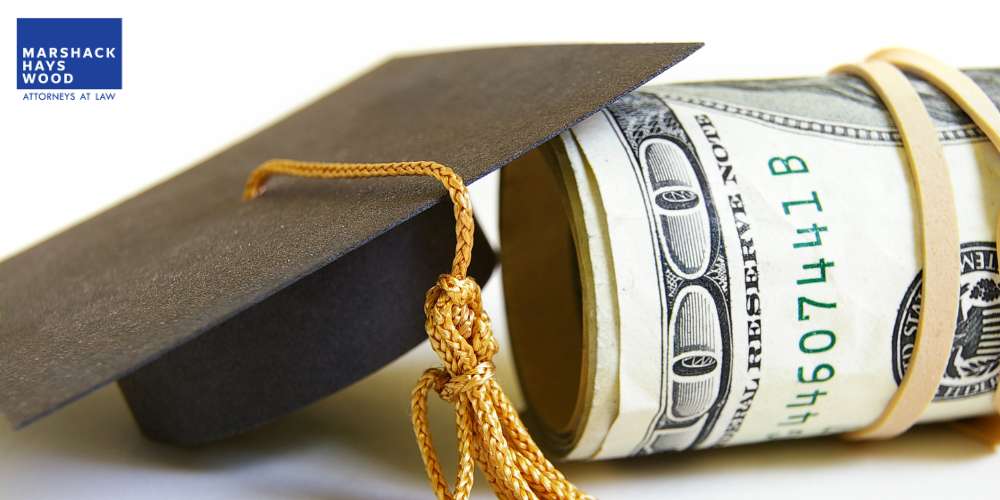
Deciding Which Bankruptcy Chapter to File
When considering bankruptcy as a solution for your financial challenges, one of the most critical decisions is determining which bankruptcy chapter to file under. Individuals dealing with student loan debt usually file under either Chapter 7 or Chapter 13 of the bankruptcy code.
Choosing the right bankruptcy chapter is a complex decision that depends on your unique financial circumstances and goals. Student loan lawyers can help those in debt decide which chapter to file under based on their current situation, needs, and financial goals.
Chapter 7 Bankruptcy
Chapter 7 bankruptcy is often referred to as ‘liquidation bankruptcy.’ Under Chapter 7, most unsecured debts, such as credit card debt and medical bills, can be discharged entirely. While it is more challenging to discharge student loans under Chapter 7, it’s not impossible. The court will assess the debtor’s financial situation to determine if repaying their student loans would impose undue hardship on them.
If this is the case, they may be allowed to have their student loans discharged. While many people prefer Chapter 7 to Chapter 13, to file for Chapter 7, the debtor must pass the “means test,” which compares their current income to the average income in their state. If their income is below the state average, they may qualify to file under Chapter 7 bankruptcy. If not, they will likely file under Chapter 13.
Chapter 13 Bankruptcy
When filing bankruptcy under Chapter 13, debtors develop a regular payment plan that would allow them to catch up on overdue payments. The repayment period usually lasts three to five years, and while it doesn’t automatically discharge student loans, it can allow the person to get a good handle on their finances as a whole.
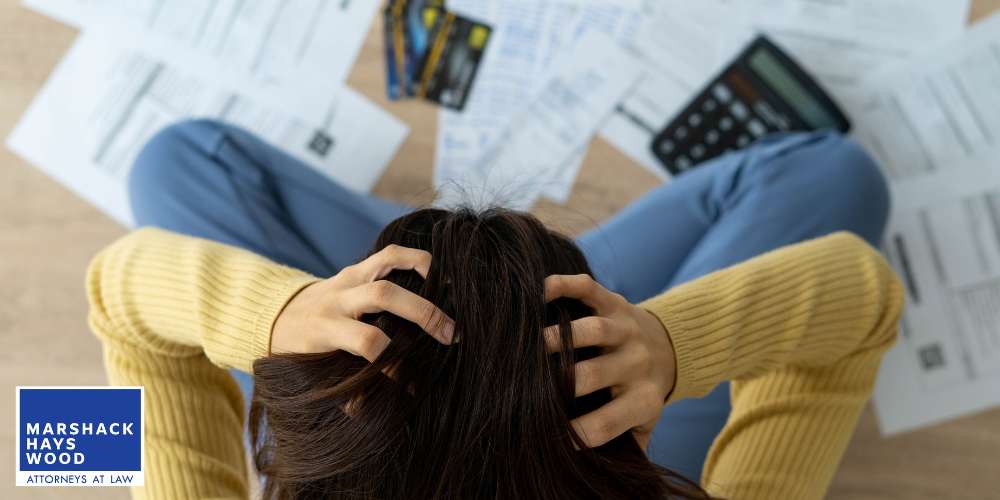
When Can People Not Discharge Student Loan Debt Through Bankruptcy?
While bankruptcy can provide a fresh start for many individuals struggling with debt, discharging student loan debt through bankruptcy is subject to specific limitations and criteria.
Someone may be unable to discharge their student loan debt through bankruptcy if they:
- Fail to prove undue hardship
- Recently filed for bankruptcy
- Have private student loans
- Have not made a good-faith effort to repay their debt
- Have committed fraudulent or criminal activity in the past
If any of these apply to you and your current situation, contact a student loan bankruptcy lawyer. They can help assess your situation and can help you explore your options, like alternative dispute resolution or non-bankruptcy workouts.
What Can I Do if I Can’t Discharge My Student Loans Through Bankruptcy?
Even if you cannot have your student loan debt discharged, bankruptcy can still help you eliminate a significant portion of your debts, allowing you to have more financial freedom. This can help you pay off your student loans without sacrificing your well-being.
Curious about your eligibility for student loan discharge? Contact the bankruptcy attorneys at Marshack Hays Wood. We can help evaluate your current situation and can help you file your bankruptcy case, regardless of your eligibility for student loan debt discharge.
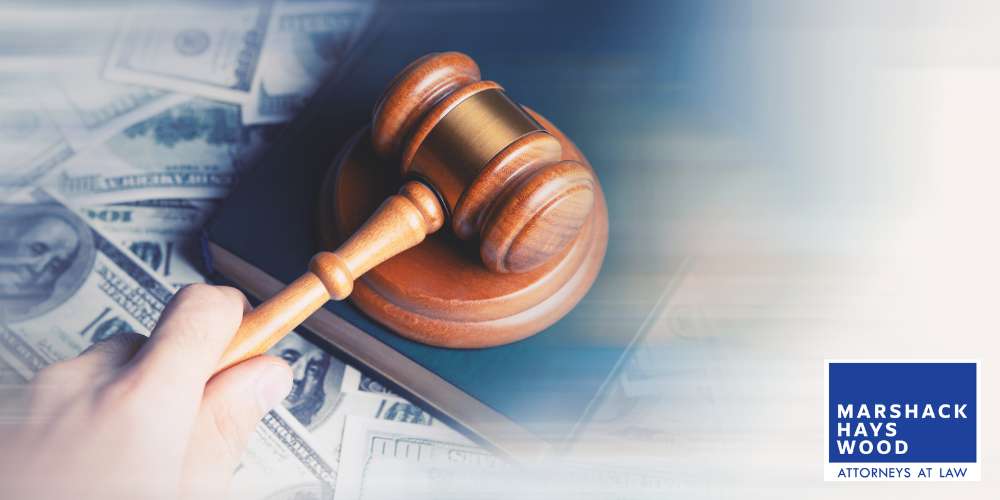
Call an Orange County Student Loan Bankruptcy Attorney at Marshack Hays Wood Today
At Marshack Hays Wood, we understand the financial and emotional stress that student loan debt can bring. Our dedicated legal team is prepared to help individuals in Orange County tackle their student loans and experience the relief of living debt-free. We provide our clients with personalized legal options tailored to their unique financial situations and offer them the legal resources they need to experience a fresh financial start.
Call us at (949) 333-7777 or contact us online to schedule a free consultation with one of our bankruptcy attorneys regarding your case.
READY TO GET STARTED?
At Marshack Hays Wood, our attorneys provide the legal support you need to move forward with confidence. Let us help you take the first step toward financial stability.
